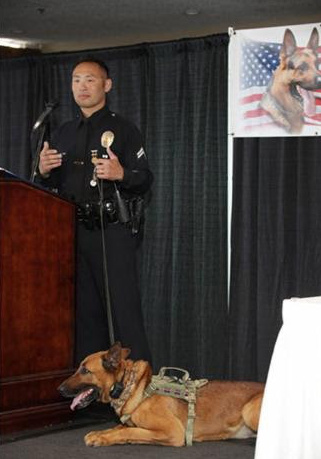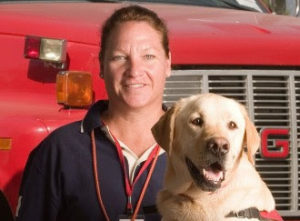
 Search Dog Trapper lived life to the fullest, enjoying every moment, whether searching for survivors after Hurricane Katrina or playing in the backyard swimming pool. This handsome Yellow Lab crossed the Rainbow Bridge at 15 years old on June 22 with his Handler of nearly 13 years, Marshia Hall, by his side.
Search Dog Trapper lived life to the fullest, enjoying every moment, whether searching for survivors after Hurricane Katrina or playing in the backyard swimming pool. This handsome Yellow Lab crossed the Rainbow Bridge at 15 years old on June 22 with his Handler of nearly 13 years, Marshia Hall, by his side.
•The British Veterinary Association reported nearly 11,000 UK pet poisoning incidents last year, with e-cigarette materials high in nicotine as a threat on the rise. Vitamin D tablet poisonings were also up, with rat poison, chocolate and artificial sweeteners also on the list.

•David Krall nearly died after he was infected with Capnocytophaga canimorsus, a rare bacteria that can be transmitted to people from dog saliva, when he was bitten by a neighbor’s dog, and although he’s recovered, he was left with partially amputated toes, hearing loss and other deficits. Krall’s condition, which was plagued by a series of mistakes and misinformation and was complicated by the fact that his spleen had been removed two decades earlier, left him in a medically induced coma for over a week.
•By Victoria Usher
The sense of fair play is an important human trait, but new research suggests that it’s a key behavior for dogs and wolves as well. This new research with wolves suggests that this aversion to unfairness predates the domestication of dogs. Scientists tested similarly raised dogs and wolves that lived in packs. Two animals of each species were placed in adjacent cages, equipped with a buzzer apparatus.
When the dog or wolf pressed it with their paw, both animals got a reward on some occasions. Other times, the dog or wolf doing the task got nothing while the partner did. The key finding was that when the partner got a high value treat, the animal doing the task refused to continue with it. “When the inequity was greatest they stopped working,” said Jennifer Essler, from the University of Veterinary Medicine in Vienna. “The fact that the behavior was found in both wolves and dogs helps to overturn the idea that dogs learned this concept because they were domesticated. It makes much more sense to say that this would be something shared from a common ancestor than to say it evolved twice, or to say that it came from domestication.”
Pet dogs are less sensitive to being treated unfairly – probably because of their experience with humans. “I think it’s clear that this is affected by both domestication as well as their life experience with humans because you do see a difference between pet dogs and pack-living dogs,” said Essler.
•Dear Dr. Weldy’s: My fiancé and I have been shopping for a new puppy, but after speaking to some friends of ours, we are blown away at the cost of veterinary care. We don’t think that we’ll move ahead with getting a puppy because the necessary care and surgery costs aren’t in our budget. Why is it so expensive to visit the vet?!
Bremen
Dear Bremen: I’m so glad you asked! You aren’t wrong, and we sympathize with you — veterinary care is not cheap, and unplanned veterinary care can be financially straining. A simple answer to your question would be to say that your veterinarian is part of a business and businesses need to generate income. But, there’s more that we in the veterinary field would like you to know.
This conversation should be prefaced by saying that everyone at your vet clinic cares about your pet. The hustle and chaos may distract from it, but those individuals are extremely hard working and they’ve dedicated their lives to ensuring the betterment of you and your pet’s lives.
The obvious holds true — veterinary clinics are commercial entities with large utility bills and lots of overhead. Additionally, medications, surgical instruments, x-rays, ultrasounds, etc., all cost a lot of money to purchase and maintain. Most importantly, though, vet clinics charge what they charge so that veterinarians, receptionists, nurses, and support staff can continue to keep pets healthy. What many people don’t understand is that the amount of money that a clinic generates rarely reflects the enormous amounts of work, education, sacrifice, blood, sweat, and tears that go into a regular day on the job.
This is well-illustrated by comparing veterinary medicine to human medicine. Veterinarians have very similar training to physicians on the human side — four years of college followed by four years of veterinary school. And many veterinarians go on to specialize, just like medical doctors. That education comes at a price for everyone; vets and physicians graduate with a similar amount of debt (approaching $200,000 for recent graduates). However, veterinarians make anywhere from a quarter to half of what physicians make.
Meanwhile, veterinary nurses and assistants (arguably the hardest working and most caring members of the veterinary team) are also suffering from a large debt-to-income ratio. Though many people are aware of the education required for vets, very few realize that many of the nurses they see at the vet have two-year, and sometimes four-year degrees. Despite their education and on-the-job training, most veterinary nurses make half (at best) of what their human counterparts bring in. The same holds true for all support staff involved. They are all extremely qualified individuals who work very hard to bring you and your animals better lives.
I haven’t pointed all of this out to complain, however. All of us enjoy our work and we’re proud of what we do. We signed up for this. I’ve pointed this out to illustrate that the veterinary team, in many ways, makes a financial sacrifice, so that we can all continue to enjoy the love and fulfillment our animals bring.
Questions for Ask a Vet can be asked either by email to [email protected], by regular mail to Dr. Weldy’s Associates, 114 N. Elkhart, P.O. Box 527, Wakarusa, IN 46573, or by visiting the website at www.drweldys.com.


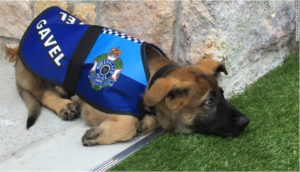
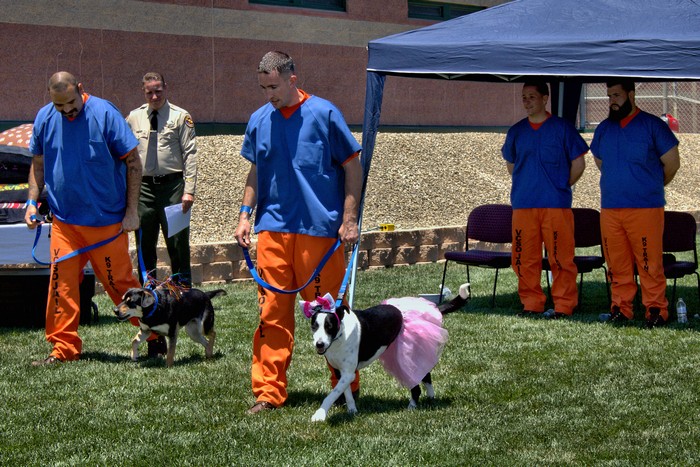
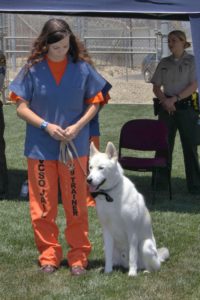




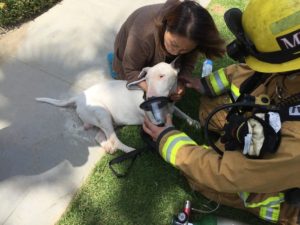
 Landon the Sheltie, a canine resident of Thousand Oaks, has had an amazing life of adventure and positive influence. After having a rough start as a young dog, Landon not only became a model and actor, but also had his own community education platform, led charity events, and became a certified therapy dog. Landon’s latest project though is particularly impressive, as he was recently appointed as the “Wellness Ambassador” for ISD Innovations—a Newbury Park-based nonprofit organization dedicated to projects that improve mental health and well-being.
Landon the Sheltie, a canine resident of Thousand Oaks, has had an amazing life of adventure and positive influence. After having a rough start as a young dog, Landon not only became a model and actor, but also had his own community education platform, led charity events, and became a certified therapy dog. Landon’s latest project though is particularly impressive, as he was recently appointed as the “Wellness Ambassador” for ISD Innovations—a Newbury Park-based nonprofit organization dedicated to projects that improve mental health and well-being.